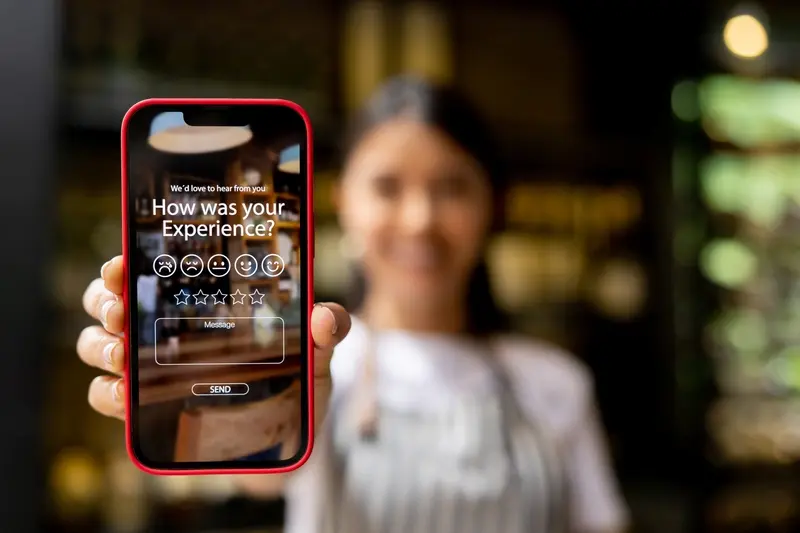How Do You Market Apps To Car Manufacturers?
The automotive industry generates over £1 trillion in revenue each year, yet most mobile app developers still treat car manufacturers like any other client. That's a mistake that costs companies millions in lost opportunities. B2B marketing in the automotive space requires a completely different approach than consumer apps—one that understands the unique challenges of an industry where safety regulations, long development cycles, and complex supply chains rule everything.
Car apps aren't just another category of mobile applications. They're mission-critical systems that need to work seamlessly whilst someone's driving at 70mph down a motorway. The stakes couldn't be higher, and car manufacturers know it. That's why they're incredibly selective about which app partners they work with, and why traditional marketing tactics simply don't work in this space.
Success in automotive B2B marketing isn't about having the flashiest demo or the lowest price—it's about proving you understand the weight of responsibility that comes with putting technology inside a vehicle
This guide will walk you through the specific strategies, relationships, and technical requirements needed to successfully market your app to car manufacturers. From understanding their unique procurement processes to building the long-term partnerships that drive real revenue, we'll cover everything you need to know about breaking into one of the world's most lucrative—and challenging—B2B markets.
Understanding the Automotive App Market
The automotive app market is massive—and I mean properly massive. We're talking about everything from navigation systems to entertainment platforms, diagnostic tools to fleet management solutions. Car manufacturers aren't just building cars anymore; they're creating complete digital experiences on wheels.
What makes this market unique is how different it is from consumer app development. When you're building for Toyota or BMW, you're not dealing with individual users downloading apps from the Play Store. You're working with procurement teams, technical departments, and decision-makers who think in terms of millions of vehicles and multi-year rollouts.
The Big Players and Their Needs
Each manufacturer has different priorities. Some focus on safety features, others want cutting-edge entertainment systems. Tesla revolutionised the in-car experience with their touchscreen approach, whilst traditional manufacturers like Mercedes and Audi are playing catch-up with their own digital solutions.
The key thing to understand is that car manufacturers move slowly—really slowly. A typical automotive development cycle takes three to five years. That app you're pitching today might not see production until the next decade. They're not looking for flashy consumer apps; they want reliable, tested solutions that won't break down when someone's driving at 70mph on the motorway.
Market Opportunities
The opportunities are everywhere if you know where to look. Connected car services, predictive maintenance, driver assistance systems, and integration with smart home devices are all growing areas. The shift towards electric vehicles has created entirely new categories of apps around charging, battery management, and energy optimisation.
Building Relationships with Car Manufacturers
Getting in front of car manufacturers isn't like pitching to your typical B2B client—these companies move at their own pace and have layers of decision-makers you need to navigate. I've worked with teams who've spent months just getting their first proper meeting with an automotive partner, and that's completely normal in this industry.
The key is understanding that car manufacturers work years ahead of their public releases. They're planning tomorrow's vehicles today, which means your car apps need to fit into their long-term roadmap rather than quick fixes. Start by researching which manufacturers align with your app's purpose—luxury brands have different needs than family-focused companies.
Finding the Right Contact Points
Trade shows like CES and automotive industry events are goldmines for making initial connections. But don't overlook LinkedIn and industry publications where key decision-makers share their thoughts on automotive technology trends. Look for roles like "Connected Car Manager" or "Digital Innovation Director"—these people understand both the technical and business sides of automotive apps.
Start building relationships 18-24 months before you need them. Car manufacturers plan their integration roadmaps far in advance, so patience pays off in the automotive industry.
Proving Your Worth Early
Car manufacturers want to see proof that your app works reliably and safely. Come prepared with case studies, user data, and most importantly, evidence that your app won't interfere with driving safety—this is their biggest concern when evaluating any new technology for their vehicles.
Creating Value Propositions for Automotive Partners
When you're pitching to car manufacturers, you need to speak their language—and that language is all about value. I've worked with enough automotive clients to know they don't care about your app's fancy animations or clever user interface. They care about one thing: how will this solve a real problem for their customers or their business?
The key is positioning your app as a solution that directly impacts their bottom line. Car manufacturers are dealing with massive pressure to modernise their vehicles whilst keeping costs down. They're looking for partners who can help them deliver better customer experiences without breaking the bank.
What Car Manufacturers Actually Want
From my experience, automotive partners are most interested in apps that can:
- Reduce customer service calls and complaints
- Increase customer satisfaction scores
- Generate additional revenue streams
- Improve brand loyalty and retention
- Streamline internal processes
Building Your Value Case
Your value proposition needs hard numbers. Don't just say your app will "improve customer experience"—show them it will reduce support tickets by 30% or increase user engagement by 25%. Car manufacturers think in terms of units sold, warranty claims, and customer lifetime value. Frame your benefits around these metrics and you'll get their attention much faster than talking about user experience improvements.
Navigating the B2B Sales Process
Selling car apps to manufacturers isn't like selling to regular consumers—it's a completely different beast altogether. The sales cycle can stretch for months, sometimes even years, and you'll be dealing with multiple decision-makers who all have different priorities. I've watched brilliant app developers get frustrated because they expected quick decisions, but that's just not how the automotive industry works.
Car manufacturers move slowly for good reason. They're putting your technology into vehicles that cost tens of thousands of pounds and need to work perfectly for years. One bad app can damage their reputation, so they'll test everything thoroughly before making any commitments.
Understanding the Decision-Making Chain
You'll typically start with lower-level engineers or product managers who understand the technical side. They'll evaluate whether your app actually works and fits their needs. If they like what they see, you'll move up to department heads, then possibly to executive level for final approval.
The automotive industry doesn't make impulse purchases—every decision goes through rigorous evaluation processes that can take six months or longer
Building Your Sales Strategy
Patience is your best friend here. Document everything you discuss, follow up regularly (but not annoyingly), and be prepared to demonstrate your app multiple times to different people. Each stakeholder will want to see how your solution solves their specific problems, so tailor your presentations accordingly.
Technical Requirements and Integration Challenges
Right, let's talk about the technical side of things—this is where many app developers come unstuck when approaching car manufacturers. The automotive industry has some pretty strict technical requirements that you simply can't ignore. I've seen brilliant apps get rejected because developers didn't understand the unique challenges of automotive integration.
Safety and Compliance Standards
Car manufacturers take safety seriously, and rightly so. Your app will need to meet automotive safety standards like ISO 26262, which covers functional safety in vehicles. This means your code needs to be robust enough to handle potential failures without putting drivers at risk. The approval process can take months—sometimes even longer—so factor this into your timeline.
Integration Complexity
Getting your app to work with a car's infotainment system isn't like building a regular mobile app. You're dealing with different operating systems, limited processing power, and strict user interface guidelines. Many manufacturers use platforms like Android Automotive or their own proprietary systems. Each one has its own quirks and requirements; what works for one manufacturer might not work for another. The testing phase alone can be incredibly time-consuming because you need to ensure your app works across different vehicle models and hardware configurations.
Pricing and Contract Negotiations
Getting the pricing right for car apps in the automotive industry is probably one of the trickiest parts of B2B marketing—and I've seen plenty of good deals fall apart because someone got greedy or didn't understand the market. Car manufacturers work with budgets that can seem massive from the outside, but they're actually quite careful about how they spend their money.
When you're pricing your app for automotive partners, you need to think about their business model first. Are they looking for a one-off purchase, a licensing deal, or ongoing support? Most car manufacturers prefer subscription-based pricing because it fits their budget cycles better—they can plan for regular payments rather than big upfront costs.
Understanding Long-term Value
The contracts in the automotive world are different from consumer apps; they're longer, more detailed, and often include performance guarantees. You'll need to factor in years of updates, security patches, and new car model integrations. That £50,000 might look good today, but if you're supporting it for five years without extra revenue, you might regret it.
Always build in yearly price increases tied to inflation—car manufacturers expect this and it protects your margins over long contracts.
Contract negotiations can take months, sometimes over a year. Be patient and don't rush the process; these partnerships are worth the wait when done properly.
Measuring Success and Long-term Partnerships
Right, so you've got your app integrated with a car manufacturer—brilliant! But now comes the real question: how do you know if it's actually working? I've learnt over the years that measuring success with automotive partners isn't quite the same as tracking a consumer app's performance.
Car manufacturers care about different metrics than your typical app store rankings. They want to see user engagement rates, crash reports (the technical kind, not the driving kind!), and most importantly, how your app affects their customers' overall satisfaction with the vehicle. Think about it—if your app keeps freezing whilst someone's trying to navigate, that reflects badly on the car brand, not just your app.
Key Performance Indicators to Track
- Daily and monthly active users within the vehicle system
- App stability and crash frequency during driving conditions
- User satisfaction scores from automotive surveys
- Integration performance with vehicle systems
- Revenue generated through the partnership
Building long-term partnerships means thinking beyond the initial contract. Regular check-ins, software updates that align with new vehicle models, and staying ahead of automotive technology trends will keep you relevant. These relationships often span years—sometimes even decades—so patience and consistency are your best friends here.
Conclusion
Marketing car apps to automotive manufacturers isn't like selling consumer apps—it's a completely different beast that requires patience, technical know-how, and a deep understanding of how the automotive industry works. I've seen plenty of brilliant app developers stumble here because they underestimated just how complex B2B marketing in this space can be.
The automotive industry moves slowly by design. Safety regulations, testing requirements, and integration challenges mean that what might take months in consumer tech can take years here. But that's not necessarily a bad thing—it means when you do get in, you're likely to have a long-term partnership that's worth the wait.
Building relationships remains your biggest asset. Car manufacturers want to work with partners they trust, not just vendors with good technology. Show them you understand their challenges; demonstrate that you can work within their systems and timelines. Most importantly, prove that your app actually solves a real problem for their customers.
The technical hurdles are real—integration requirements, safety standards, and compatibility issues will test your development team. But if you've done your homework and built something genuinely useful, these challenges become stepping stones rather than roadblocks to success in the automotive market.
Share this
Subscribe To Our Learning Centre
You May Also Like
These Related Guides

What's the Best Content Marketing Strategy for App Developers on a Budget?

How Do You Market a Mobile Game That No One Knows About?



